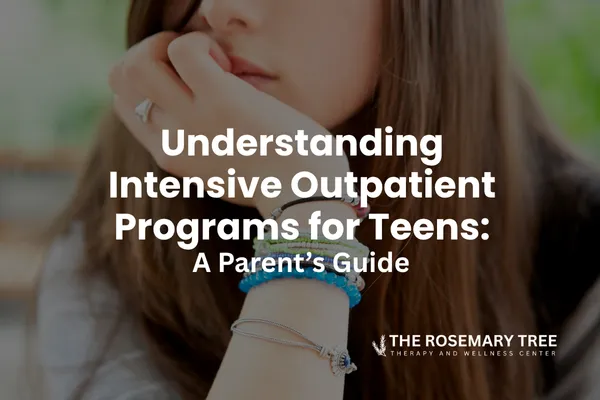
Understanding Intensive Outpatient Programs for Teens: A Parent’s Guide
What Is an IOP?
An Intensive Outpatient Program (IOP) is a structured form of therapy that provides more support than weekly counseling while allowing teens to live at home and continue school. Unlike residential treatment, an IOP does not require overnight stays. Instead, adolescents attend therapy sessions three to five days a week for several hours per day. IOPs serve as a middle ground between traditional outpatient therapy and inpatient care, offering flexibility for families who need intensive support but want to maintain daily routines.
Who Can Benefit from an IOP?
IOPs are designed for teens experiencing moderate to severe mental health challenges, such as anxiety, depression, trauma, or behavioral issues, who need more than weekly sessions but aren’t in immediate danger requiring hospitalization. If your child’s symptoms are interfering with school, relationships, or daily functioning, an IOP might provide the additional structure and skill-building they need. These programs are also helpful for teens transitioning from inpatient or residential treatment back to everyday life.
Core Components of an IOP
Most IOPs combine several therapeutic elements:
Group Therapy: Teens interact with peers facing similar challenges, fostering empathy and shared learning. Group sessions may focus on topics like coping skills, stress management, and interpersonal relationships.
Individual Counseling: Licensed therapists meet one-on-one with each participant to address personal issues, explore underlying causes, and set individualized goals.
Skills Training: Participants learn practical strategies for regulating emotions, managing anxiety, and improving communication. These skills are reinforced through homework assignments and real-life practice.
Psychoeducation: Teens gain a better understanding of their mental health conditions and learn how thoughts, emotions, and behaviors are connected. This knowledge empowers them to recognize triggers and develop healthy habits.
Family Involvement in IOPs
Family participation is a critical component of most intensive outpatient programs. Parents and caregivers may be invited to join weekly family therapy sessions, educational workshops, or progress meetings. These sessions help families learn how to support their teen at home, address dynamics that contribute to stress, and create a consistent environment for recovery. Active involvement improves communication, builds trust, and enhances treatment outcomes.
Benefits of an IOP
IOPs offer several advantages:
Structured Support: Frequent sessions provide continuity and accountability, helping teens make steady progress.
Flexibility: Teens can remain at home, continue school, and maintain relationships while receiving intensive therapy.
Peer Community: Connecting with peers who understand their struggles can reduce isolation and encourage positive change.
Cost-Effective: IOPs are often less expensive than residential treatment and may be covered by insurance plans or sliding-scale fees.
Holistic Growth: Programs that integrate creative or experiential therapies—like art, music, or nature-based activities—can further enrich the healing process.
How to Know If an IOP Is Right for Your Teen
Signs that an IOP might be appropriate include persistent mood swings, declining grades, withdrawal from friends and family, self-harm behaviors, or a lack of improvement with standard outpatient therapy. Consult with a mental health professional to assess your teen’s needs, considering factors like safety, motivation, and level of functioning.
Choosing the Right Program
When evaluating IOPs, consider the program’s specialization, staff credentials, therapeutic approaches, and family involvement. Look for programs tailored specifically to adolescents, staffed by licensed therapists with experience treating teens. Ask about the curriculum, group size, treatment philosophy, and aftercare options. A reputable program will welcome your questions and provide clear information.
Preparing for an IOP
If you decide an IOP is the right step, prepare your teen by discussing the schedule and setting expectations. Coordinate logistics with school administrators and plan transportation. Encourage your child to approach the program with an open mind and remind them that seeking help is a sign of strength.
By understanding what an Intensive Outpatient Program entails and recognizing its potential benefits, you can make informed decisions about your child’s mental health care. Structured support, skill-building, and family involvement can help your teen regain balance and move toward lasting wellness.


